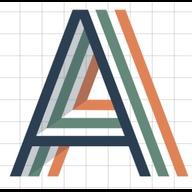Germany Recycling Equipment Market Analysis Insights into Industrial Recycling and Waste Management
A comprehensive Germany Recycling Equipment Market Analysis reveals key trends, challenges, and opportunities within the industry. The analysis highlights the significance of German recycling technology and industrial waste processing in optimizing recycling operations. Challenges include high initial investment costs and the need for skilled labor to operate advanced machinery. However, opportunities exist in the development of innovative recycling technologies that enhance material recovery rates and reduce environmental impact.
Germany is a pioneer in recycling and waste management practices. Known for its circular economy model, the country’s recycling equipment market is driven by both industrial and municipal demands. German manufacturers are leading innovators, producing high-quality machinery designed for efficiency, sustainability, and environmental compliance.
Market Overview
The German recycling equipment market includes machinery for sorting, shredding, compacting, and processing various types of waste materials. Equipment is tailored for metals, plastics, paper, glass, and electronic waste. Germany’s strong focus on sustainability and energy efficiency ensures that recycling equipment not only processes waste but also contributes to resource conservation.
Drivers of Growth
The growth of Germany’s recycling equipment market is influenced by several factors:
-
Strict Environmental Policies: German legislation requires high recycling rates and reduced landfill use, creating a steady demand for advanced recycling solutions.
-
Industrial Waste Management: Germany’s extensive manufacturing sector, including automotive and electronics, generates significant recyclable waste.
-
Innovation and R&D: German companies are continuously developing technologically advanced equipment that increases recycling efficiency and reduces operational costs.
Market Segmentation
The market can be segmented as follows:
-
By Equipment Type: Shredders, sorting machines, compactors, and waste-to-energy plants.
-
By Material: Plastics, metals, paper, glass, and electronic waste.
-
By End-User: Industrial, municipal, and commercial recycling operators.
Sorting technology and shredders remain the backbone of the market due to their ability to process diverse waste materials effectively. Industrial plants, in particular, invest in state-of-the-art systems to manage high volumes of waste efficiently.
Technological Innovations
Germany’s recycling equipment market is defined by innovation:
-
Automation and Robotics: Automated sorting lines improve efficiency and reduce labor costs.
-
Digitalization: IoT and data analytics enable better tracking and management of recycling processes.
-
Sustainable Solutions: Machines that convert waste into energy and reusable materials support Germany’s sustainability goals.
These innovations not only optimize recycling processes but also help companies comply with strict environmental standards.
Challenges
The German recycling equipment market faces certain obstacles:
-
High Initial Investment: Advanced machinery can be costly, limiting adoption among smaller enterprises.
-
Technical Complexity: Operating sophisticated equipment requires skilled personnel and ongoing maintenance.
-
Regulatory Pressure: Compliance with environmental standards can be challenging and requires continuous updates.
Future Outlook
The future of Germany’s recycling equipment market looks promising. The focus on circular economy principles and energy efficiency is expected to drive demand for cutting-edge machinery. Emerging technologies like AI-powered sorting systems and automated monitoring tools will further enhance market growth.
FAQs
Q1: Which recycling equipment is most commonly used in Germany?
A1: Sorting machines, shredders, and waste-to-energy equipment are highly prevalent due to their efficiency and adaptability.
Q2: How does innovation impact the German market?
A2: Automation, robotics, and digital technologies make recycling processes faster, more accurate, and cost-effective.
Q3: What are the main challenges for this market?
A3: High capital costs, technical complexity, and strict regulatory requirements remain significant hurdles.
plastic extrusion machine Market Size
Laundry folding machine Market Size
Additive Manufacturing Machine Market Size
Reverse Vending Machine Market Size
- Art
- Causes
- Crafts
- Dance
- Drinks
- Film
- Fitness
- Food
- Игры
- Gardening
- Health
- Главная
- Literature
- Music
- Networking
- Другое
- Party
- Religion
- Shopping
- Sports
- Theater
- Wellness



